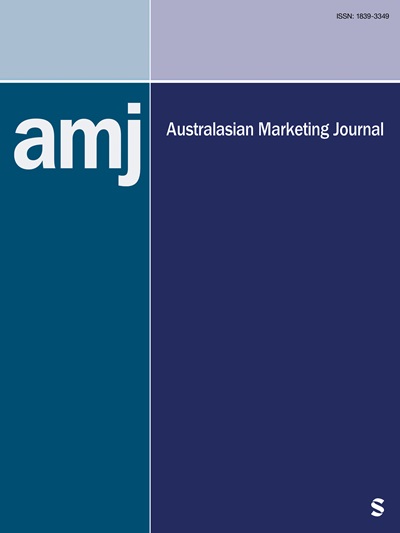Does Customer Experience Always Benefit Company? Examining Customers’ Epistemic Motivation and Interaction With Service Contexts
IF 4
Q2 BUSINESS
引用次数: 5
Abstract
The main purpose of this study is explaining how and when customer experience benefits the company. Built upon social identity theory, we propose that customer experience leads to customer engagement behavior, via two routes: customer-company and customer-employee identification. Furthermore, we advance that customers’ epistemic motivation negatively moderates the mediated effect of customer experience on customer engagement behavior. We ran two studies to validate the measurement of customer experience and to test our hypotheses. For the two studies, we employed a survey method by recruiting consumers of beauty salons in Vietnam. The results demonstrated that EXQ as a measurement for customer experience is applicable to the context of the study and provided empirical support for the hypotheses. Such as, this research found that customer experience positively influences customer engagement behavior as mediated by customer-company and customer-employee identification. Furthermore, this research revealed that customer epistemic motivation negatively moderates the mediated effect of customer experience on customer engagement behavior via customer-employee identification. However, the moderating role of customer epistemic motivation is insignificant for the mediated relationship via customer-company identification. Finally, this research offers theoretical and practical contributions that are elaborated and further discussed.客户体验总是有利于公司吗?检视顾客的认知动机及与服务情境的互动
本研究的主要目的是解释客户体验如何以及何时对公司有利。基于社会认同理论,我们提出客户体验通过两条途径导致客户参与行为:客户公司和客户员工认同。此外,我们还提出,客户的认知动机对客户体验对客户参与行为的中介作用具有负向调节作用。我们进行了两项研究来验证客户体验的测量,并检验我们的假设。在这两项研究中,我们采用了一种调查方法,招募了越南美容院的消费者。结果表明,EXQ作为客户体验的衡量标准适用于研究背景,并为假设提供了实证支持。例如,本研究发现,客户体验通过客户公司和客户员工身份的中介作用,对客户参与行为产生积极影响。此外,本研究还表明,客户认知动机通过客户-员工认同对客户体验对客户参与行为的中介作用起到了负向调节作用。然而,对于通过客户-公司识别的中介关系,客户认知动机的调节作用并不显著。最后,本研究提供了理论和实践贡献,并对其进行了阐述和进一步讨论。
本文章由计算机程序翻译,如有差异,请以英文原文为准。
求助全文
约1分钟内获得全文
求助全文
来源期刊

Australasian Marketing Journal
BUSINESS-
CiteScore
14.90
自引率
16.70%
发文量
25
期刊介绍:
The Australasian Marketing Journal (AMJ) is the official journal of the Australian and New Zealand Marketing Academy (ANZMAC). It is an academic journal for the dissemination of leading studies in marketing, for researchers, students, educators, scholars, and practitioners. The objective of the AMJ is to publish articles that enrich and contribute to the advancement of the discipline and the practice of marketing. Therefore, manuscripts accepted for publication will be theoretically sound, offer significant research findings and insights, and suggest meaningful implications and recommendations. Articles reporting original empirical research should include defensible methodology and findings consistent with rigorous academic standards.
 求助内容:
求助内容: 应助结果提醒方式:
应助结果提醒方式:


